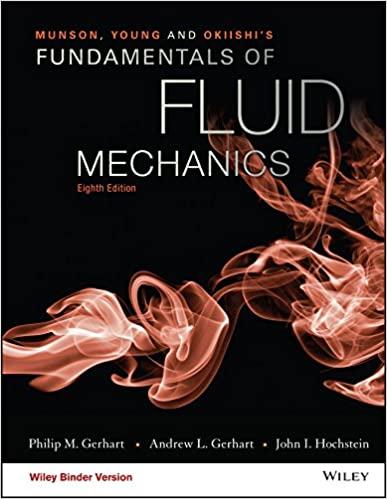For the fan of both Examples 5.19 and 5.28 discuss what fluid flow properties you would need
Question:
For the fan of both Examples 5.19 and 5.28 discuss what fluid flow properties you would need to measure to estimate fan efficiency.
Example 5.1
A great danger to workers in confined spaces involves the consumption of breathable air (oxygen) and its replacement with other gases such as carbon dioxide \(\left(\mathrm{CO}_{2}\right)\). To prevent this from happening, confined spaces need to be ventilated. Although there is no standard for air exchange rates, a complete change of the air every 3 minutes has been accepted by industry as providing effective ventilation.
A worker is performing maintenance in a small rectangular tank with a height of \(10 \mathrm{ft}\) and a square base \(6 \mathrm{ft}\) by \(6 \mathrm{ft}\). Fresh air enters through an 8-in.-diameter hose and exits through a 4-in.diameter port on the tank wall. The flow is assumed steady and incompressible.
Determine
(a) the exchange rate needed \(\left(\mathrm{ft}^{3} / \mathrm{min}\right)\) for this tank
(b) the velocity of the air entering and exiting the tank at this exchange rate.
Example 5.28
Consider the fan of Example 5.19.
Show that only some of the shaft power into the air is converted into useful effects. Develop a meaningful efficiency equation and a practical means for estimating lost shaft energy.
Step by Step Answer:

Munson Young And Okiishi's Fundamentals Of Fluid Mechanics
ISBN: 9781119080701
8th Edition
Authors: Philip M. Gerhart, Andrew L. Gerhart, John I. Hochstein





